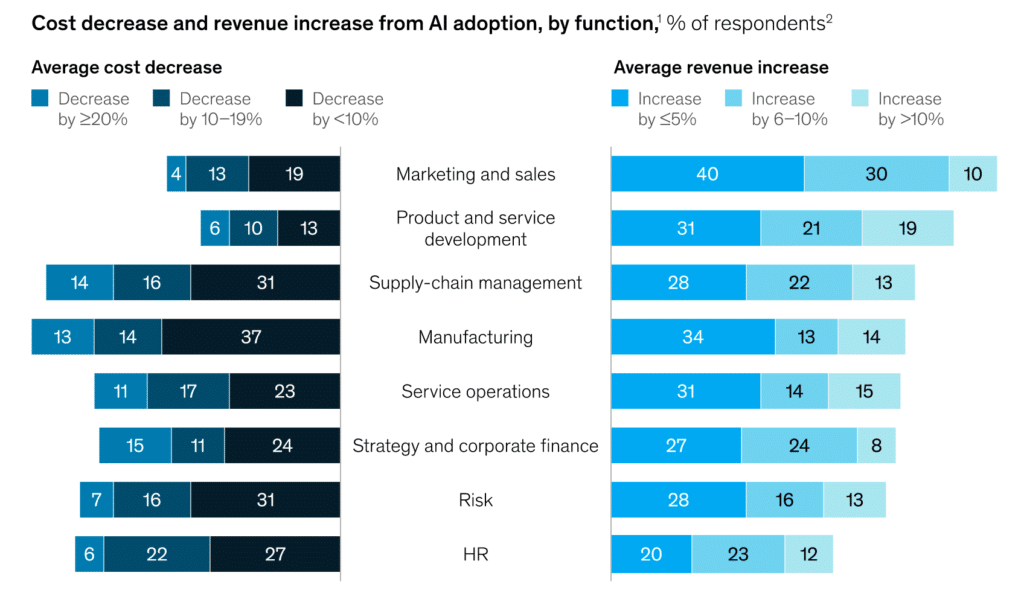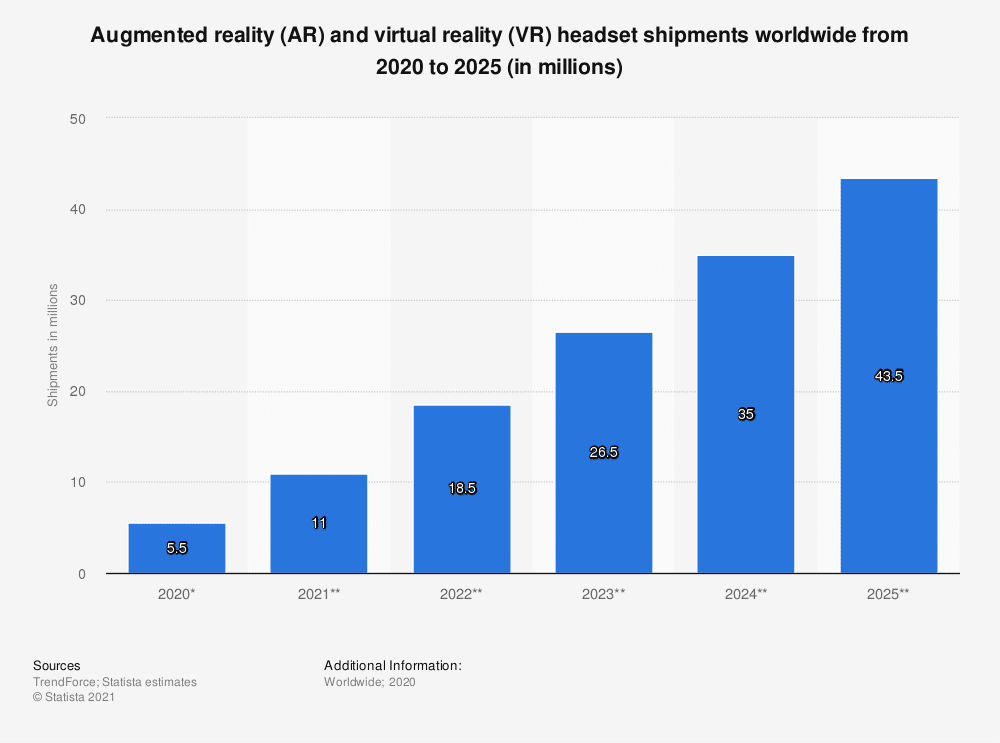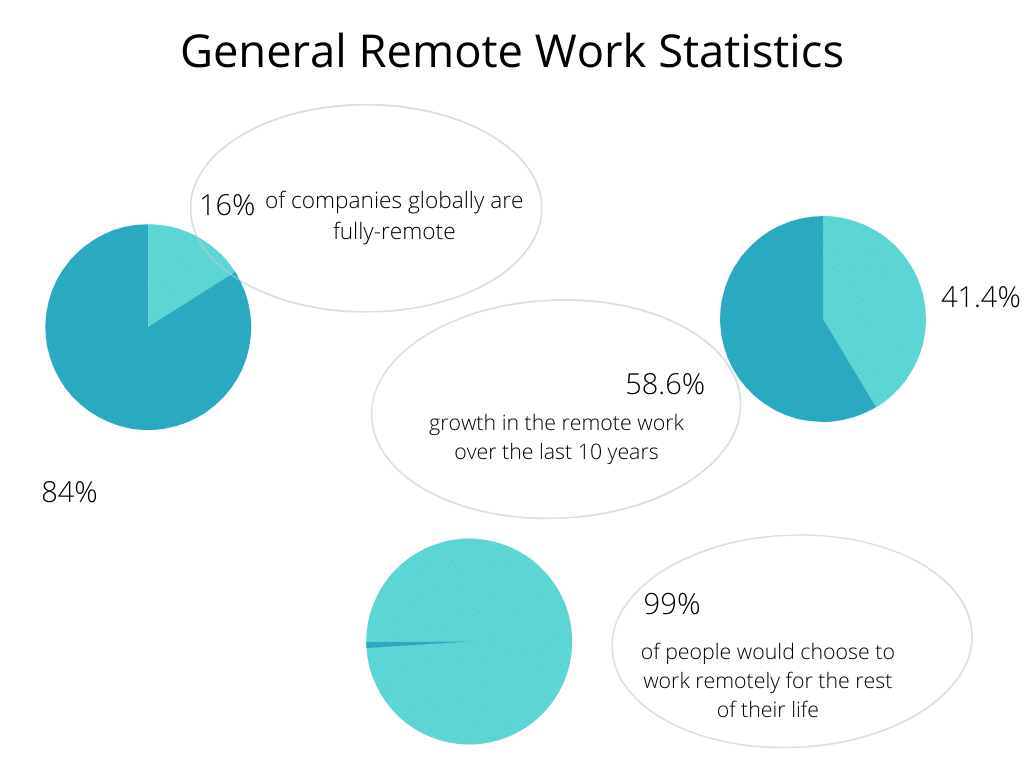Business Innovation and Tech Tools That Will Be Popular in 2022
The tech industry is arguably the biggest beneficiary of change and definitely the biggest catalyst for change in this era. And if you find yourself in this industry, you must always keep up with the trends and possible evolution, or you could be lost and antiquated in just a year.
2021 saw the rise and development of tech tools and innovations such as 5G, A/R and V/R, Internet of Things, and the “as a service” revolution. All of these and more contributed significantly to tech offerings and the business viability of tech companies and vendors.
For instance, an IBM report states that companies have an average of 6.3%points of direct revenue gains from the use of AI. Companies that are top adopters of technological trends are more than twice more profitable as companies that lag.
As we draw the curtain to 2021, acclimatizing yourself to possible trends even before 2022 gives you a headstart. It enables you to begin with clarity on how to achieve the coming year’s objective.
So what business innovation and tech tools do we expect to take center stage in 2022? Let’s find out
No going back on Artificial Intelligence and Machine Learning
The concept of AI and ML have been around and have been a major subject of discourse in the last decade. Notwithstanding its long presence, AI remains a major outlook for 2022 because we are still in its application’s beginning phases. We are yet to witness the major innovations that AI will power.
AI is expected to be mainstream technology in 2022, as 86 percent of CEOs admitted to using AI in their offices this year. Another 54 percent of executives admit that incorporating AI in the workplace has enhanced productivity.
According to available information, the artificial intelligence market was estimated at $27.23 billion in 2019 and $58.3 billion in May 2021. This figure is expected to increase significantly in the next eight years as the industry is expected to grow at a CAGR of 33.2%. AI is expected to increase global GDP by $15.7 trillion, or 26 percent, by 2030.
Another survey has suggested that 44 percent of companies that use AI report a significant decrease in operational expenses in departments where AI is used.
Beyond the cost-cutting benefits, we anticipate that by 2022, AI technology will be prevalent in most development tools.

More adoption for cloud technology
Cloud technology is one of the primary factors influencing software development trends in recent years. While cloud technology is not a new idea, the way it has been adopted and implemented has revealed newer possibilities and improved user experience. According to a reported study from the International Data Group, over 60 percent of businesses have already completely or partially adopted cloud technology. Other statistics tell us that 94% Of organizations currently use a cloud service.
Cloud technology improves security and stability, which ultimately reduces costs and gives businesses more flexibility. Companies that invest in big data and cloud technology grow their profit by 53% faster than their competitors.
The reported Bitglass survey posits that cloud-based applications helped companies to reduce operational costs.
The global market for cloud services is predicted to hit $623.3 billion by 2023.
Shifting our lenses to Virtual Reality and Augmented Reality
2021 saw the rise of the application of VR and AR in other mainstream activities beyond gaming. Other industries such as the military, real estate, engineering, medicals, and especially e-commerce have shown satisfactory use cases for virtual reality. In 2022, we will only witness more application of this technology.
According to virtual reality sales statistics, the number of VR/AR devices dispatched globally is expected to reach 68.6 million units in 2023. Furthermore, AR and VR headsets are expected to sell over 30 million units per year by the end of 2023.
The AR and VR market is projected to reach $209 billion by 2022, with more industries and professionals adopting this technology to enhance their services.

DevOps
The concept of DevOps has been trending in the tech space for a while, and this is not because of its fancy name but the tremendous benefits attached to the adoption of DevOps culture. With DevOps, organizations and developers are more efficient in their deliveries, translating to a more positive accounting book.
According to the State of DevOps reports, firms that have fully implemented DevOps have shorter build-to-market times, better outcomes, and are resourceful and creative than those that do not incorporate DevOps. In a survey, 58% of organizations that have implemented DevOps had better performance and more profits.
DevOps has improved the end-to-end customer experience for 68 per cent of companies that have implemented it, and 47% of businesses have reported Reduced time-to-market for software and services. DevOps’ market share is expected to grow by $6.6 billion by 2022.
Blockchain beyond cryptocurrency
For most people, blockchain is strictly a cryptocurrency technology used in Bitcoin, ethereum, and the likes. Although crypto popularised the concept of blockchain, blockchain has wider use cases that extend beyond crypto transactions. Blockchain allows for more transparent and chronological storage of data. It is tipped to be the future of data storage and tracking because of its immutable and accessibility structure.
Between 2019 and 2025, the global blockchain market is expected to grow at a CAGR of more than 69 percent.
Already we have seen other industries like fintech, logistics, cybersecurity, etc., adopt blockchain. The adoption is, however, still low and in its early stages. The projections for blockchain are very promising. According to TechJury, blockchain technology can save banks up to 30% on infrastructure costs; it can also save financial institutions up to $12 billion per year.
We anticipate more adoption and popularity for blockchain technology in 2022 as reports have it that global investment in blockchain solutions will surpass $11 billion at the time.
Marketing is tilting from perception to real experience
Marketing is a very important topic that cuts across every industry. If your marketing isn’t right, converting leads will be difficult. In recent times, conversion entails more than advertisement and offerings; customer experience is now more important than ever. 96 percent of users believe that experience is the most important factor in fostering brand loyalty. This position is further reiterated by the Deloitte marketing trend report of 2021. Here, 79 percent of respondents recall a brand by the positive experiences attributable to the brand.
According to Deloitte, the human experience is shaped by values, emotions, actions, and trust. In essence, in 2022, you should consider building real relationships based on sincere experiences with your customers and not just rely on advertisements.
You can enhance customer experience by deploying technology that promotes constant communication between your brand and user base.
Outsourcing and remote work would continue
While outsourcing has been a popular work model, the recent covid pandemic further popularized this concept, and it has been a trend for companies post-pandemic. More than 93 percent of businesses use some form of IT outsourcing to improve their efficiency and develop a bigger overall business model. In a Deloitte survey, 70% of respondents admitted that outsourcing helps them save money.

Conclusion
As an organization, you should be proactive and always anticipate changes and trends to maintain relevance in the industry. We hope that you digest this report and take the necessary steps to give you a productive 2022.



